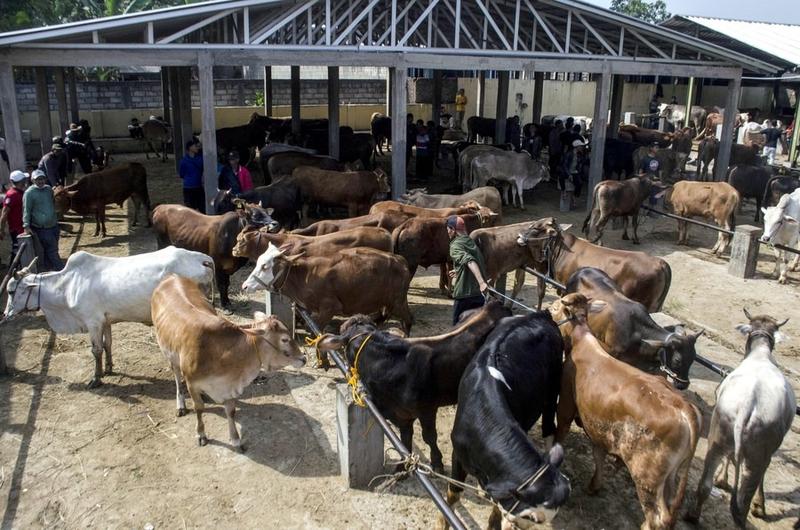 Cattle are ready for purchase ahead of the Muslim festival Eid al-Adha in Sumedang, West Java, Indonesia, on June 24, 2023. (PHOTO / XINHUA)
Cattle are ready for purchase ahead of the Muslim festival Eid al-Adha in Sumedang, West Java, Indonesia, on June 24, 2023. (PHOTO / XINHUA)
SYDNEY - Indonesia has paused live cattle imports from four Australian facilities after lumpy skin disease (LSD) was detected in a small number of cattle some time after arrival, the Australian government said.
Australian officials were working with Indonesia to reassure market participants that all animals exported from Australia complied with Indonesian requirements, including being free of LSD, Agriculture Minister Murray Watt said in a statement on Sunday.
LSD, which causes blisters and reduces milk production, is a highly infectious viral disease affecting cattle and buffalo that is transmitted by insect biting but which does not pose a risk to humans
Rapid diagnostic testing of cattle has begun to help restore exports from the impacted facilities, he said.
ALSO READ: ASEAN visit: HK enters 15 trade deals with Indonesia
LSD, which causes blisters and reduces milk production, is a highly infectious viral disease affecting cattle and buffalo that is transmitted by insect biting but which does not pose a risk to humans.
Australia is free of LSD and cattle exports to Indonesia continues from other facilities, Watt said.
READ MORE: Indonesia sees rising wildfire risk amid dry weather conditions
Given the presence of LSD in Indonesia, positive results in cattle after reaching Indonesia were not unexpected, Australia's Chief Veterinary Officer Mark Schipp said. LSD was first reported in livestock in Indonesia early last year.
Indonesia is the largest market for Australian live cattle exports, accounting for about 56 percent in 2021–22, data showed, worth about A$900 million ($600 million). It is a trade that Australia's north heavily relies on.
READ MORE: Wang: China-Russia-Indonesia ties conducive to regional peace
Australia did not specify the number of shipments that will be impacted by Indonesia's decision.


